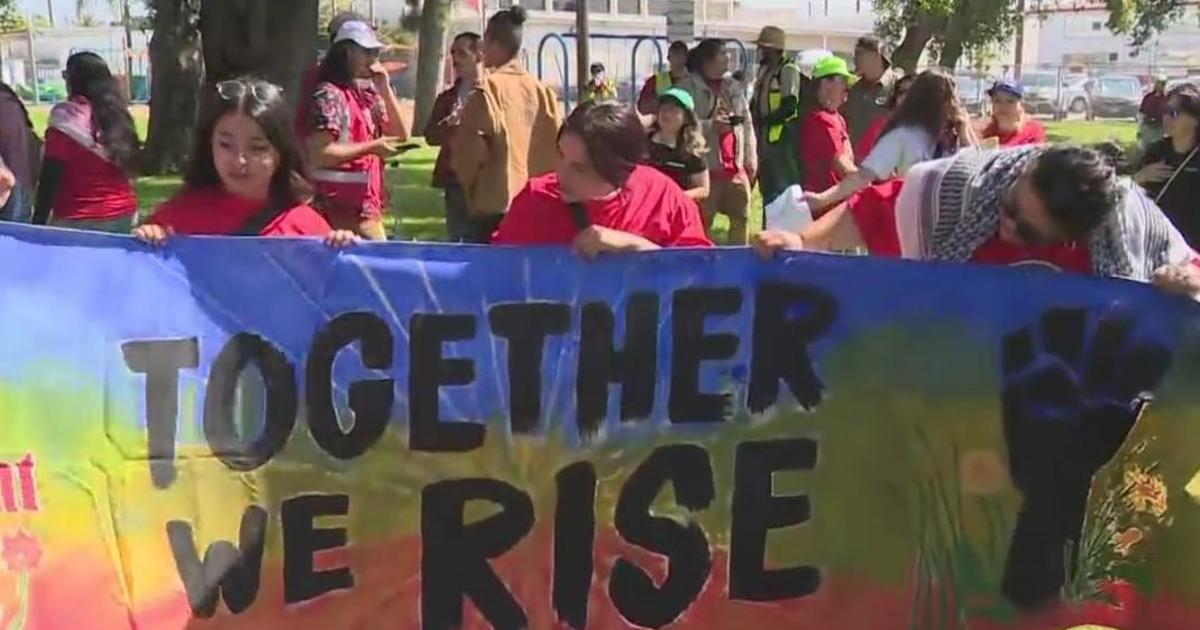Climate change is putting gray whales on the brink of possible extinction
Whale watching is a fan favorite pastime off the coast of Southern California, but one species you may have seen is nearing the brink of possible extinction due to ongoing climate change.
Gray whales migrate more than 10,000 miles a year, swimming from their chilly feeding waters in the Arctic to their warm breeding grounds in Baja California, but human-caused climate change has now put the species in peril.
"When you layer on fisheries, entanglements and loud and noisy oceans and boat strikes, it's like death by a thousand cuts," said Dr. Alissa Deming, VP of Conservation Medicine and Science at Pacific Marine Mammal Center.
It's not just the ocean's largest creatures that face the threat of extinction either.
Over the last 15 years, there have been more unusual mortality events that have impacted a variety whale species, seals, sea lions and small crustacean species — more than ever in the past.
Climate change is altering ocean temperatures and sea currents, making it harder for sea creatures to find food. Gray whales have started migrating later and are often malnourished, causing them to sometimes give birth in unprotected areas further north than Baja California.
With an increasing lack of prey in their usual hunting grounds, orcas — or killer whales — are now showing up off the Southern California coastline, intersecting with the gray whales and their calves with deadly results.
"There's not a lot of things big enough to take down a gray whale, and orcas are one of them that have figured it out," Deming said.
Experts are working to study and understand how warming ocean temperatures are impacting the movements of animals, and they believe that migration pattern changes for orcas and grey whales is just the beginning.
"Our environment is so connected, and the ecosystem really has these kind of butterfly effects where one little thing happens, and that can really result in significant impacts down the road," Deming said.
Over the last 50 years, oceans have absorbed about 90% of the Earth's increased heat energy and experts say recent years have had an even larger toll. Prolonged periods of unusually high temperatures, also known as marine heatwaves, have occurred across the globe, creating devastating effects on the marine ecosystem.
"It's normal for environments to change, but when the change happens quickly, it doesn't give that opportunity for animals to react and change their behavior," said Deming.
Climatologists say that time is of the essence as climate change restructures the delicate equilibrium for all living organisms on Earth.
"Education is really the key for turning this around ... this is a collective effort," said Kirsten Donald, VP of Education and Ocean Advocacy at the Pacific Marine Mammal Center. "We all have to be a part of the solution. Climate change is one of the number one problems facing us today and that is going to impact ourselves as well."
Environmentalists suggest that making simple changes can help make a big difference. Things like using less plastic, buying products in bulk and at local farmers markets can help lessen a person's impact.
According to the National Oceanic Atmospheric Administration, US fishermen and seafood farmers operate under some of the world's strictest environmental standards, so checking packaging to ensure product comes from America can also help.



